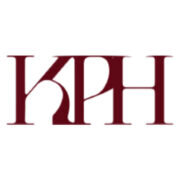Best International Trade Law Lawyers in Imus
Share your needs with us, get contacted by law firms.
Free. Takes 2 min.
List of the best lawyers in Imus, Philippines
About International Trade Law in Imus, Philippines
International Trade Law in Imus, Philippines, encompasses the regulations and legal frameworks that govern trade activities across international borders. This area of law includes trade agreements, tariffs, and import/export regulations, ensuring that businesses comply with both local and international standards. Imus, being part of the economic zone in the Philippines, plays a significant role in the nation's trade activities, making an understanding of these laws critical for businesses engaging in international commerce.
Why You May Need a Lawyer
There are several scenarios where individuals or businesses involved in international trade may require legal assistance:
- Negotiating and drafting international sales contracts
- Understanding and complying with import and export regulations
- Resolving disputes related to trade agreements or customs duties
- Dealing with trade sanctions and embargoes
- Handling intellectual property concerns across borders
- Navigating the implications of free trade agreements
- Advising on tariff classifications and valuations
Local Laws Overview
In Imus, certain local laws have particular relevance to international trade:
- The Customs Modernization and Tariff Act (CMTA), which outlines procedures for exports, imports, and duties
- The Foreign Investments Act, governing foreign ownership and investment in local businesses
- The Trade and Industry Development Programs initiated by the Department of Trade and Industry (DTI)
- Compliance with ASEAN Economic Community agreements, as the Philippines is a member
- Adherence to regulations laid out by the Bureau of Customs regarding documentation and valuation
Frequently Asked Questions
What is the role of the Bureau of Customs in international trade?
The Bureau of Customs is responsible for regulating and facilitating trade, assessing and collecting duties, and enforcing customs laws to secure revenue.
What documentation is required for importing goods into the Philippines?
Key documents include the Import Entry Declaration, Bill of Lading, Commercial Invoice, Packing List, and any applicable permits or licenses.
How do trade agreements affect businesses in Imus?
Trade agreements can lower tariffs, simplify border procedures, and enhance market access, benefiting businesses by reducing costs and expanding opportunities.
Are there restrictions on what can be exported from the Philippines?
Yes, there are restrictions, including bans on certain wildlife products, hazardous materials, and goods that contravene national security.
How can a business protect its intellectual property internationally?
Filing for appropriate protections like trademarks or patents in each jurisdiction and leveraging international treaties can help safeguard IP.
What duties and tariffs apply to imported goods?
These depend on the product's classification and value, with rates outlined under the Harmonized System Code by the Bureau of Customs.
Can foreign companies operate freely in Imus?
While they can operate, there are regulations under the Foreign Investments Act, including restrictions on foreign ownership in certain industries.
What are the penalties for non-compliance with trade regulations?
Penalties can include fines, confiscation of goods, and in severe cases, criminal charges against individuals or entities.
How can businesses benefit from free trade zones in the Philippines?
Free trade zones offer tax incentives, reduced tariffs, and infrastructure support, facilitating investment and growth in international trade.
What is the process for resolving an international trade dispute?
Dispute resolution can involve negotiation, mediation, arbitration, or judicial proceedings, often guided by terms in trade agreements or contracts.
Additional Resources
For further assistance, consider these resources and organizations:
- The Department of Trade and Industry (DTI)
- The Bureau of Customs
- The Philippine Chamber of Commerce and Industry
- Local Trade Organizations and Chambers of Commerce
- Private law firms specializing in international trade
Next Steps
If you find yourself needing legal assistance in international trade, consider these steps:
- Identify the specific area of trade concern or query you have.
- Research and reach out to legal professionals specializing in international trade within Imus, Philippines.
- Prepare all relevant documentation and information before consulting a lawyer.
- Consider seeking initial advice from governmental or trade bodies for general guidance.
- Engage a lawyer familiar with both local and international trade laws to better navigate the complexities involved.
Lawzana helps you find the best lawyers and law firms in Imus through a curated and pre-screened list of qualified legal professionals. Our platform offers rankings and detailed profiles of attorneys and law firms, allowing you to compare based on practice areas, including International Trade Law, experience, and client feedback.
Each profile includes a description of the firm's areas of practice, client reviews, team members and partners, year of establishment, spoken languages, office locations, contact information, social media presence, and any published articles or resources. Most firms on our platform speak English and are experienced in both local and international legal matters.
Get a quote from top-rated law firms in Imus, Philippines — quickly, securely, and without unnecessary hassle.
Disclaimer:
The information provided on this page is for general informational purposes only and does not constitute legal advice. While we strive to ensure the accuracy and relevance of the content, legal information may change over time, and interpretations of the law can vary. You should always consult with a qualified legal professional for advice specific to your situation.
We disclaim all liability for actions taken or not taken based on the content of this page. If you believe any information is incorrect or outdated, please contact us, and we will review and update it where appropriate.










